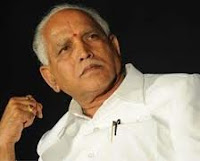
Believe it or not, Bihar was once one of India’s best-administered states when it was led by chief ministers such as Sri Krishna Sinha and Anugrah Narayan Sinha. Things fell apart, particularly under Mrs Indira Gandhi, and for a long time there was no chief minister that Biharis could be proud of (Lalu Prasad’s demeanour, whether you call it earthiness or theatrics, was no substitute for work; his success as railways minister was perhaps a matter of his reaping what his predecessor at Rail Bhawan, Nitish Kumar, had sown).
With this week’s win — which may take academics a while to digest, such is its import as a game-changer in India’s most backward and casteist society — Biharis showed that they would respond to a leader who gave them a vision instead of an agenda. The win thus belongs deservedly to Chief Minister Nitish Kumar. No wonder many Biharis are now breathlessly speaking of him as a future NDA prime minister.Talk is diminishing, on the other hand, of Rahul Gandhi as a future prime minister.
Congress president Sonia Gandhi would hopefully introspect at how fast things are falling apart for her party despite the combined attempts by her, son Rahul and Prime Minister Manmohan Singh to galvanise voters and party cadre for the Bihar Assembly election. It does not augur well for the dynasty’s political future. Sure, the Congress will next year console itself with a win in Kerala (West Bengal will be a Mamata show all the way) but another pasting awaits them in Tamil Nadu. The leverage the Congress thought it had with the DMK following A Raja’s resignation in the 2G spectrum scam has vanished, and the situation has reversed: following the Bihar election it’s the DMK with the leverage.
Don’t expect J Jayalalithaa to be in a generous mood if the Congress in desperation turns to the AIADMK. And the less said about the Congress party’s prospects in the UP Assembly election, still a ways off, the better.For Rahul’s sake, Sonia needs to turn things around. Fortunately the solution is not far to find; what she needs to do is to take a lesson from the Bihar election and emulate her low-profile BJP counterpart, Nitin Gadkari.
(Before her courtiers scoff at the idea, they might once again review the seats each party won.) Gadkari certainly doesn’t look as good as she does, and he certainly doesn’t have her mass appeal; but what he’s shown is that even before completing his first year in office, despite his not being part of the Delhi crowd, despite being dismissed as an RSS puppet, and despite the pinpricks from party rivals, he has aced his first big test as party chief.
Imagine what might have happened had the BJP made him chief in time for the election in his home state Maharashtra last year.Gadkari’s work ethic — of dealing with the nuts and bolts, of clocking in 16 hours a day, of being accessible to everyone and anyone in his party (can the Congress president make the same claim?) — started showing results with the smaller tests he faced in the run-up to the Bihar election. At the beginning of the year, he sorted out his Rajasthan unit, which had been wiped out in the parliamentary and Assembly elections of May 2009, and ensured ex-CM Vasundhara Raje had a free hand in the zila parishad polls. It produced results, and the Rajasthan unit was back in business.
In June, he took the fight to civil aviation minister Praful Patel’s constituency and managed a BJP majority in the zila parishad election in Gondiya. In July, he ensured the defeat of the Andhra Pradesh Congress chief in the Nizamabad by-election, in a state that’s a Congress stronghold. And in October, the BJP swept the Gujarat local bodies’ elections; though the credit indisputably goes to Chief Minister Narendra Modi, Gadkari’s attention to detail ensured a massive win.
And then there was the Bihar election. So engrossed was Gadkari in its nitty-gritty that he has not had time to spare for the preparations for his son’s wedding, in Nagpur next week. No wonder the BJP won 91 of 102 seats it contested, a winning rate of 90 per cent: a statistical rarity. Of the 11 seats that the party lost, five were already written off (like Araria, which is a Muslim-majority constituency); so you could say that the winning rate was even higher than 90 per cent. It was no fluke.
Gadkari systematically planned for the election six months in advance. At a strategic level he gave responsibility to a greenhorn, general secretary Dharmendra Pradhan (along with election in-charge Ananth Kumar, who, incidentally is blamed by some for Karnataka Chief Minister B S Yeddyurappa’s troubles).At a tactical level Gadkari made Bihar BJP rivals Sushil Kumar Modi and Nand Kishore Yadav sit together and sort out the candidates, constituency by constituency. If a leader’s loyalist or two did not make the grade, then too bad; to ensure that each and every candidate was selected on merit Gadkari even commissioned surveys from five different agencies to ascertain the truly worthy. In some seats, Gadkari even sanctioned the poaching of candidates from other parties.
Dissidence was kept on a tight leash; if a worker from a panchayat threw a tantrum, word immediately got back to Gadkari. Nothing was left to chance. Of course, this kind of success depends on organisational machinery. Sonia would do well to mull over her and Rahul’s repeated failure to fix the Congress party machine.Sonia might of course wonder aloud what kind of party president would allow the continuance of Yeddyurappa, whose only defence of his sons’ getting prime land at throwaway prices was that his predecessors also did it.
The land allotment undoubtedly stinks, but Yeddyurappa has cancelled it and has now distanced himself from his sons. Gadkari perhaps expects that the taint will be offset by the next electoral triumph in Karnataka. After all, neither Ashok Chavan nor Suresh Kalmadi can win an election for Sonia, and A Raja may even lose one for the Congress.
Another Gadkari asset, thus, is pragmatism.Sonia knows that her power derives solely from her ability to get votes. She is on a losing streak and the prospects don’t look too bright for her son on the road to 2014. If she wants Rahul to have the same kind of buzz — about being a future prime minister — that Nitish Kumar attracted following this week’s Bihar election, she would do well to take a look at the Gadkari playbook in preparation for the 2012 UP Assembly election. Or she’ll lose more than just most of her candidates’ deposits.
 कोर्ट के आदेशों के बावजूद दिल्ली पुलिस ने एक बार फिर वामपंथी लेखिका अरुंधती राय को राहत दे दी है। दिल्ली पुलिस ने शनिवार को कहा कि अरुंधती के खिलाफ कोई मामला नहीं बनता।
कोर्ट के आदेशों के बावजूद दिल्ली पुलिस ने एक बार फिर वामपंथी लेखिका अरुंधती राय को राहत दे दी है। दिल्ली पुलिस ने शनिवार को कहा कि अरुंधती के खिलाफ कोई मामला नहीं बनता।











































